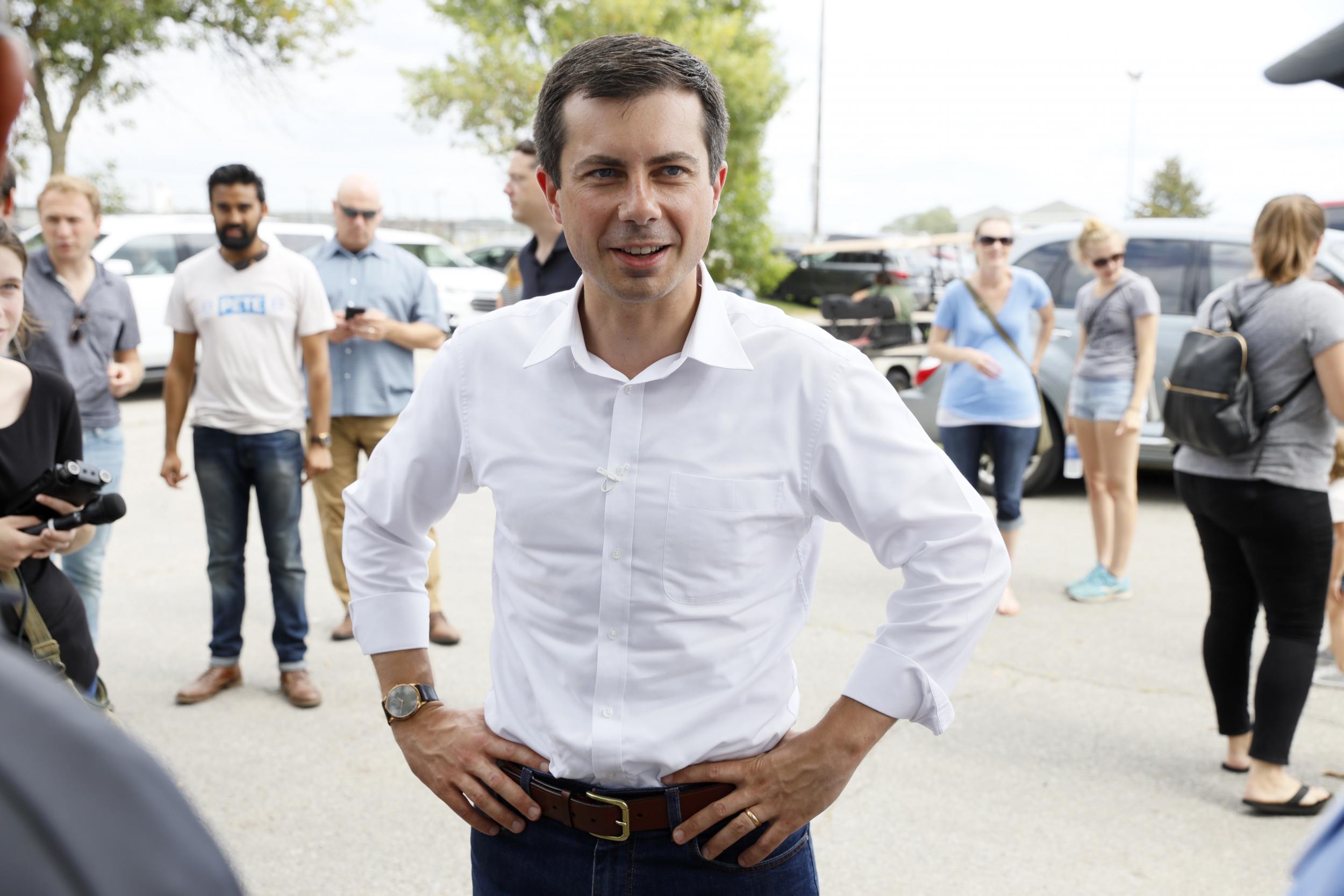Pete Buttigieg has called climate change a religious crisis — but is he brave enough to do it in evangelical Texas?
This week's Democratic debate is being held in a state where both evangelical Christianity and climate change denial are popular. Buttigieg and his peers should seize the opportunity

At the recent CNN town hall on climate disruption, the big-screen backdrop behind the hosts and the candidates did not read “Climate Change,” it read “Climate Crisis.” And at least three of those who spoke — Bernie Sanders, Elizabeth Warren, and Pete Buttigieg — characterized this crisis as a moral crisis. Buttigieg, however, went a step further and turned the moral crisis into a religious crisis.
“Let’s talk in language,” he began, “that is understood across the heartland, about faith. You know, if you believe that God is watching as poison is being belched into the air of creation, and people are being harmed by it, countries put at risk in low-lying areas, what do you suppose God thinks of that?” His answer: God would call it “a sin.”
“You don’t have to be religious,” he added, “to see the moral dimension of this because, frankly, every religion and nonreligious moral tradition tells us that we have some responsibility to stewardship, some responsibility for taking care of what’s around us, not to mention taking care of our neighbor.”
Buttigieg has already been mentioned in Washington as a possible vice-presidential choice, in which case — as America’s first gay presidential candidate — he would face his fellow evangelical Christian Indianan, Mike Pence, in what might prove a historic debate, a debate that could force to the surface a neglected religious dimension to the climate crisis. Will Buttigieg strike the same note at the upcoming, more wide-open debate on Thursday in the very “heartland” he speaks of — in Texas, a state alive both with evangelical Christianity and with climate crisis denial?
Americans dream of the larger-than-life political leader who can inspire us to rise above ourselves and do what we must do to save our planet and ourselves. But before that inspiring leader can appear, inspiration must first reach the voters who will elect such a leader. And how can that happen?
Is it too much to hope, as Buttigieg seems to, that American religious leaders — Christian priests and ministers, Jewish rabbis, Muslim imams, Hindu pundits, and others — may speak to their people of the moral obligation implicit in the fact that in the United States each year 194,000 lives are claimed by inhalation of air pollutants from fossil fuels, not to speak of all the deaths resulting from weather extremes triggered by climate disruption? Might they not suggest that it is morally wrong to ask Americans to pay with their lives for our collective addiction to fossil fuels? What does it profit a nation to save the trillion dollars per year that a full conversion to renewables might cost but to lose the nation’s soul — and all those innocent lives — in the process? Week in and week out, can our religious leade

Pete Buttigieg: 'Nominate me and you get to see the president stand next to an American war veteran and explain why he chose to pretend to be disabled when it was his chance to serve'rs ask that kind of question?
Voters do not like to be preached at. But there is a place for preaching — a crucial place— and who can step into that breach if not the clergy of the country? Evolution has conditioned us to respond to danger mainly when it is near in time and place and threatens our loved ones or ourselves, but religion itself is a product of evolution and has survived partly because it delivers a crucial corrective to just such potentially fatal myopia. Nothing could be less scientific than to ignore its relevance at a crisis moment like the present, and there are visionary scientists such as V Ram Ramanathan, Frieman Presidential Chair in Climate Sustainability at the University of California, San Diego, who recognize as much.
Ramanathan has led the way as a consultant to the Vatican in the preparation of Pope Francis’s climate encyclical Laudato Si’ and in the far-reaching UC project Bending the Curve: Climate Solutions. And thanks to leadership like his, there are more religious leaders all the time who have embraced the climate facts as science knows them, definitely including evangelical Christian leaders like those who produced the eloquent manifesto “Christians and Climate Change: An Evangelical Call to Action.”
But the prophetic message, if it can be delivered soon enough and forcefully enough to awaken the country, will not be delivered by the few clergy who make headlines. Instead, it will be delivered by the thousands who do not, and for them a few kindling political lines in the self-sacrificial vein of John F Kennedy’s “Ask not what your country can do for you, ask what you can do for your country” may yet make the crucial difference.
Like the small-time political donors whose collective power is producing a political earthquake, the Democratic candidates’ potential power is immense, and this may be their moment of truth. When the climate catastrophe that threatens us all is finally recognized as presenting the greatest moral challenge that humankind has ever faced, then the cry of conscience from below may reach the top at last, and the world’s now paralyzed political leadership may arise and walk. Let us pray.
Jack Miles is a Pulitzer Prize winner, distinguished professor emeritus at the University of California, Irvine, and author of the forthcoming Religion As We Know It: An Origin Story
Join our commenting forum
Join thought-provoking conversations, follow other Independent readers and see their replies
Comments
Bookmark popover
Removed from bookmarks